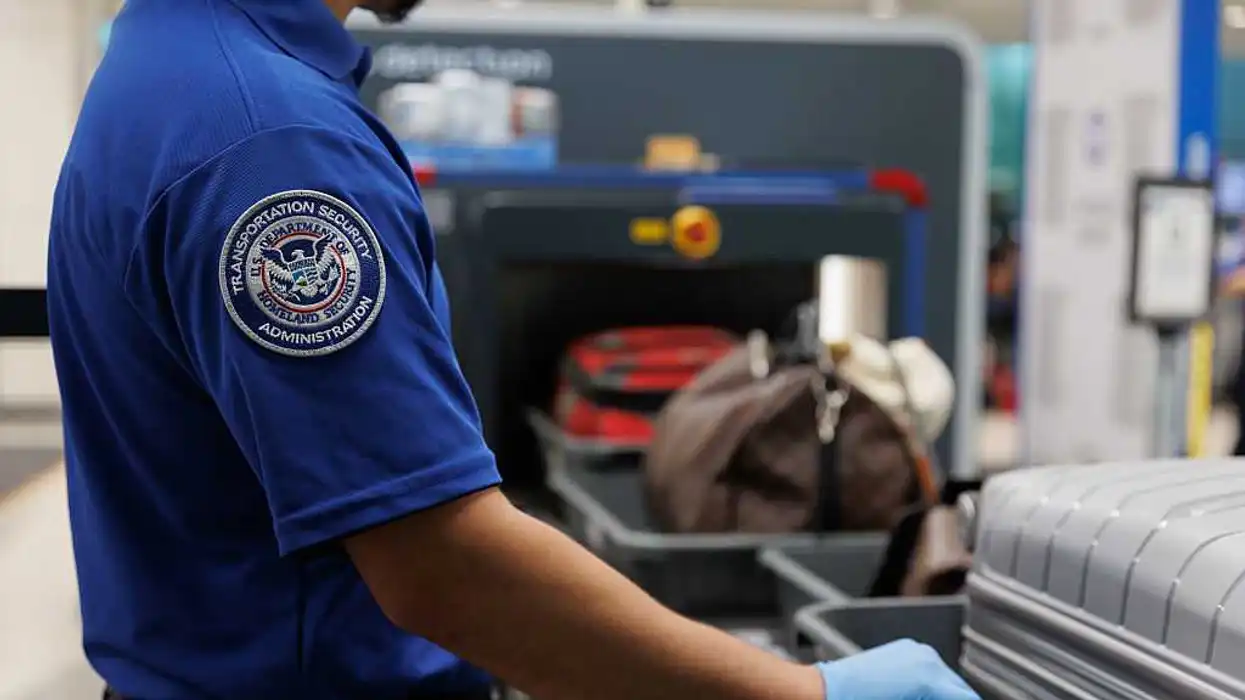
© 2025 Blaze Media LLC. All rights reserved.
Congress authorized overtime for agents on 'diaper patrol,' but not for agents at the border
August 06, 2019
The message being conveyed to Border Patrol agents is that their most important job is to care for lawbreakers and smugglers, not to patrol against the cartels and previously deported criminal aliens. The job of “diaper patrol” is being prioritized over the job of protecting Americans from national security concerns. Nowhere is this more evident than in the pay incentives given to agents.
Due to complaints of abuse in the overtime pay system among some agents, Congress passed the Border Patrol Agent Pay Reform Act (BPAPRA) in 2014. The law abolished standard overtime pay for Border Patrol, and in its place, agents were given three options for their five-day work weeks. They could work standard eight-hour shifts and receive base pay only, or they could work nine-hour shifts and receive 12.5 percent over base pay, or 25 percent over base pay if they opt for 10-hour shifts. Any time agents work outside the scheduled shift, i.e. 10 hours, they are not paid for the work but are given “comp time” instead.
Given the crisis of hundreds of thousands of migrants surrendering at the border while thousands of “runners” get away, there is a need for all hands on deck. Yet thanks to the supplemental bill passed by Congress in June, agents only receive overtime for working at the processing centers babysitting the illegal aliens, not for actually patrolling the line.
“As it stands now, we are averaging between 9-15 agents actually on the line ... less than 30 percent of our station,” said one line agent in the Rio Grande Valley, who spoke with CR anonymously because he is not authorized to speak to the media. “Because of the recent influx, overtime has been authorized to address the problem. What problem? Oh, the ‘humanitarian challenge,’ not the open border problem. Each week, each shift at the station is given a certain amount of hours. The hours [are] ‘first come, first served’ and also based on seniority (Union). We can choose to work two hours of overtime per day or come in on our day off and work a full shift. The only stipulation is IT HAS TO BE FOR THE HUMANITARIAN CRISIS, i.e processing, record checks, sally port security, file creation, transportation, etc. IT CAN’T BE FOR BORDER SECURITY.”
How does this play out in the field?
“Say for example at the end of a shift you are involved in a 'bailout' and illegals are running everywhere in the neighborhood ... since this is your case you have to catch the illegals, get the vehicle towed to the station, do a vehicle packet, generate paperwork for the bailout, create a 'case' for prosecution, etc., the list goes on. Well, by this time it is two hours after your shift ended, and you finally get finished ... guess what? You don’t qualify for overtime ... you get comp time.
What’s the problem with comp time?
According to the agent I spoke to, “This comp time has to be prescheduled with the supervisors and in only extreme cases the agent is justified in unscheduled comp time. This hinders the work and leaves a massive gap during shift change if agents are late to replace them or if they are working ‘traffic.’ If agents are incentivized to stay longer until they are relieved by the next shift, it will close the gaps. But without overtime, if they make a spontaneous decision to stay an extra hour until the next shift comes, they will not get comp time either. This is why most of them just leave, and the cartels smugglers know this, which is why there are so many bad guys getting in between shift changes.”
On the other hand, thanks to the supplemental funding bill, agents who work an extra two hours at the processing center or who come in on their day off are paid overtime
What sort of message does this send about the priorities of the agency?
Another longer-serving veteran agent in the Rio Grande valley told me that if overtime were approved for line work, agents would jump at the opportunity to do their core jobs. “Agents are dying to get out of those facilities and actually do what they were trained to do. Offering agents overtime only for humanitarian work but not for security work sends the wrong message to agents and makes it clear that Congress does not prioritize our key mission nor do members understand how many security problems are emanating from the border and the need for more manpower.”
I asked a CBP press official if he was concerned about the dichotomy between the humanitarian and security work in terms of overtime pay. He declined to go on the record, but noted that Congress only approved the funding for humanitarian work and that none of this was the decision of DHS. They simply utilized the funds that were given to them in the way they were earmarked. He also suggested that putting in more hours at the processing center could potentially free up other agents to go to the line.
Both line agents I spoke to vigorously disputed that premise. “That’s complete BS, it never relieves another guy to hit the field,” bemoaned the more senior of the two Texas agents I spoke with. “Assignments are done ahead of time and are not spontaneous. If I send three agents out to do border security due to having three overtime processors, it doesn’t serve the purpose of overtime, which is to handle the high volume of processing. Thus, all the extra work goes into the humanitarian work, not on the line. We must add or multiply our number of agents processing, not swap them out. If anything, the supplemental – by funding more humanitarian work and not border security – has placed even more mandates on agents to divert more manpower away from the line.”
The other agent, who often does night shifts, noted that he has not seen “any difference in terms of the number of agents in the field since passage of the supplemental. The entire purpose of that bill was for diaper patrol, not for Border Patrol.”
There is another budget bill that will pass Congress in September, but one thing is clear: If the border crisis does get addressed, it will all be about more funding for caring for illegal immigrants rather than for doing what the Border Patrol was created to do.
Editor's note: This article has been updated to correct some issues of punctuation.
#mc_embed_signup{background:#fff; clear:left; font:14px;}
/* Add your own MailChimp form style overrides in your site stylesheet or in this style block.
We recommend moving this block and the preceding CSS link to the HEAD of your HTML file. */
Want to leave a tip?
We answer to you. Help keep our content free of advertisers and big tech censorship by leaving a tip today.
Want to join the conversation?
Already a subscriber?
Blaze Podcast Host
Daniel Horowitz is the host of “Conservative Review with Daniel Horowitz” and a senior editor for Blaze News.
RMConservative
Daniel Horowitz
Blaze Podcast Host
Daniel Horowitz is the host of “Conservative Review with Daniel Horowitz” and a senior editor for Blaze News.
@RMConservative →more stories
Sign up for the Blaze newsletter
By signing up, you agree to our Privacy Policy and Terms of Use, and agree to receive content that may sometimes include advertisements. You may opt out at any time.
Related Content
© 2025 Blaze Media LLC. All rights reserved.
Get the stories that matter most delivered directly to your inbox.
By signing up, you agree to our Privacy Policy and Terms of Use, and agree to receive content that may sometimes include advertisements. You may opt out at any time.






